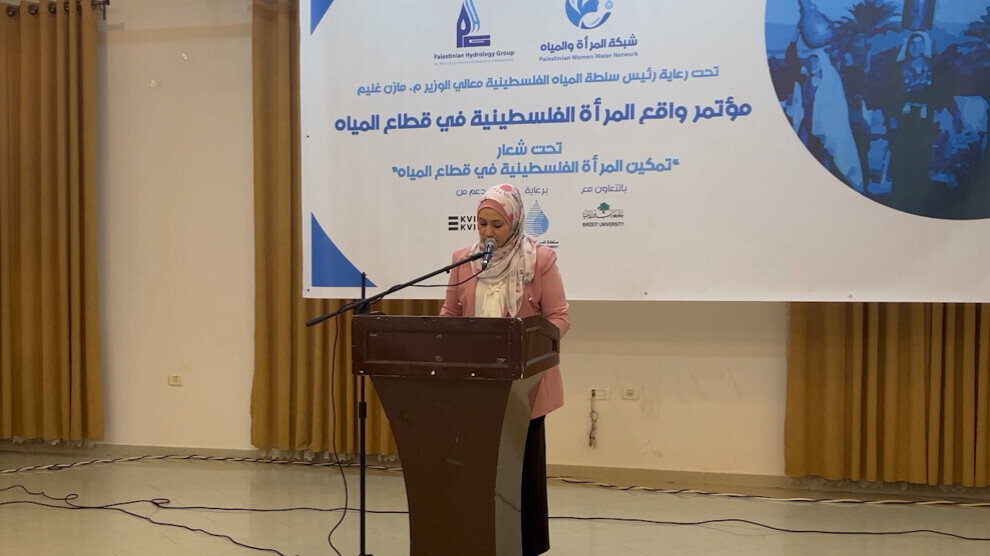Conference on reality of Palestinian women in water sector
The Palestinian Women Water Practitioners Network (PWWPN) held a conference on “The Reality of Palestinian Women in the Water Sector” in the Gaza Strip.

NAGHAM KARAJEH
Gaza- The Palestinian Women Water Practitioners Network (PWWPN) held a conference on “The Reality of Palestinian Women in the Water Sector” in the Birzeit University on December 14,2022. Rana Al-Khoury, representative of the Kvinna till Kvinna Foundation, was one of the speakers at the conference. In her speech, she confirmed that women and girls are the most affected by climate change, particularly in marginalized areas. Stating that Palestinian women are subjected to oppression and discrimination, she noted that women play an important role in protecting environment and in achieving sustainable development.
‘Women must participate in decision-making processes’
Researcher Hana Hanoun was another speaker of the conference. “Women must participate in decision-making processes. They play an active role in the environmental and agricultural sectors. Women earn income for themselves and their families,” she said in her speech. Underling that many Palestinians living in rural areas have no access to running water, she said, “80% of the regions in Palestine have no water and women bear the burden of this crisis. Women have to go out at night to provide water for their families and they face many dangers. Women’s participation in the water sector is essential in order to achieve the goals of sustainable development and empower women economically and contribute to improving the quality of services provided to them.”
‘Water crisis affects the most women and girls’
In her speech at the conference, Esraa Shublak, coordinator of the Climate Justice Project, said, “Water crisis affects the most women and girls. At this conference, we shed light on the crisis affecting women and girls, the most vulnerable and marginalized group in society. Women and girls suffer from gender-based violence. The Palestinian Women Water Practitioners Network aims to contribute in improving access to water, sanitation and hygiene through exchanging knowledge among members and others, water projects and policies focusing on gender issues.”
One of the speakers at the conference, Reem Abu Shomar, Program Coordinator at the Palestinian Water Authority, said, “Today, we have presented some documents focusing on the challenges faced by women in the water sector and ways to empower women and their participation in decision-making processes. The conference sheds light on the reality of women in the water sector.”
